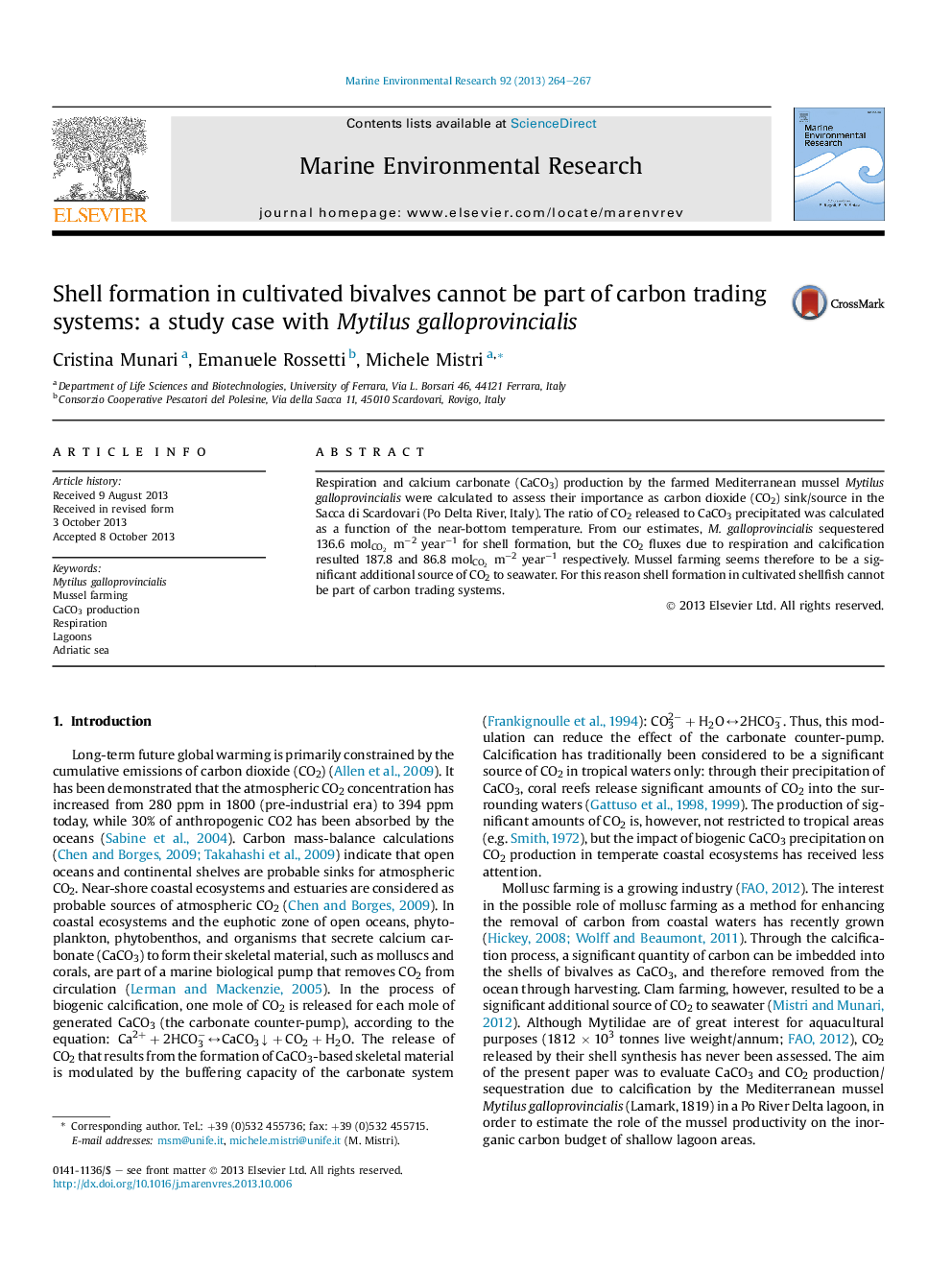| Article ID | Journal | Published Year | Pages | File Type |
|---|---|---|---|---|
| 6387897 | Marine Environmental Research | 2013 | 4 Pages |
Abstract
Respiration and calcium carbonate (CaCO3) production by the farmed Mediterranean mussel Mytilus galloprovincialis were calculated to assess their importance as carbon dioxide (CO2) sink/source in the Sacca di Scardovari (Po Delta River, Italy). The ratio of CO2 released to CaCO3 precipitated was calculated as a function of the near-bottom temperature. From our estimates, M. galloprovincialis sequestered 136.6 molCO2 mâ2 yearâ1 for shell formation, but the CO2 fluxes due to respiration and calcification resulted 187.8 and 86.8 molCO2 mâ2 yearâ1 respectively. Mussel farming seems therefore to be a significant additional source of CO2 to seawater. For this reason shell formation in cultivated shellfish cannot be part of carbon trading systems.
Related Topics
Physical Sciences and Engineering
Earth and Planetary Sciences
Oceanography
Authors
Cristina Munari, Emanuele Rossetti, Michele Mistri,
